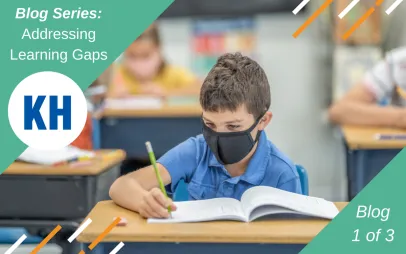What will happen to our students?
March 12, 2021
 By:
Kendall Hunt
By:
Kendall Hunt
The biggest question on educator’s minds is how to best address learning loss. There is no simple answer and although ideas ranging from repeating a grade level, one-on-one tutoring, to summer school have been tossed around there is no “one solution” that meets individual student needs.
Recognizing that there is no one way to best go about this, administrators have already begun to give teachers general guidelines that ultimately place high expectations to align students’ grade level progress while filling in the gaps so they are ready for fall 2021. This daunting task is easier said than done.
But what happens to the students who have disappeared all-together or have fallen way behind? To continue focusing on grade-level instruction poses a risk to students as they will only continue to far further behind, glazing over key learning gaps and preventing mastery of new concepts needed to move on. What about students who have managed to stay at grade level during the school year, will they grow bored or become disengaged due to the repetition? However, to not address the gaps will only lead to an inevitable accumulation of inequity and confusion.
The pandemic has brought to light gaps within the infrastructure of the educational system as a whole and the importance of resources needed to support the very teachers and students it serves. Topics such as inequity, social and emotional development, and infusion of technology have taken center-stage. Parents, as well as teachers, are all left to wonder what will happen to their children if they do not get back on track.
That is why now is the time to shift our focus and rethink about how we meet every student’s needs to help them achieve success. It is no longer about what is fastest, cost-effective, or convenient. Now is the time where we as supporters of education must take a step back and refocus our attention on the student as an individual, meeting them where they are and providing reassurance that with our help, we can get them where they need to be.
We understand that trying to find a program that meets the needs of all your students so that learning gaps can be addressed properly and comprehensively - that probably doesn’t exist - is frustrating. But that is where ConstructEd and Kendall Hunt can help.
This is part 1 of a 3-part blog series addressing learning gaps and providing resources curated by Kendall Hunt to assist educators and parents.
